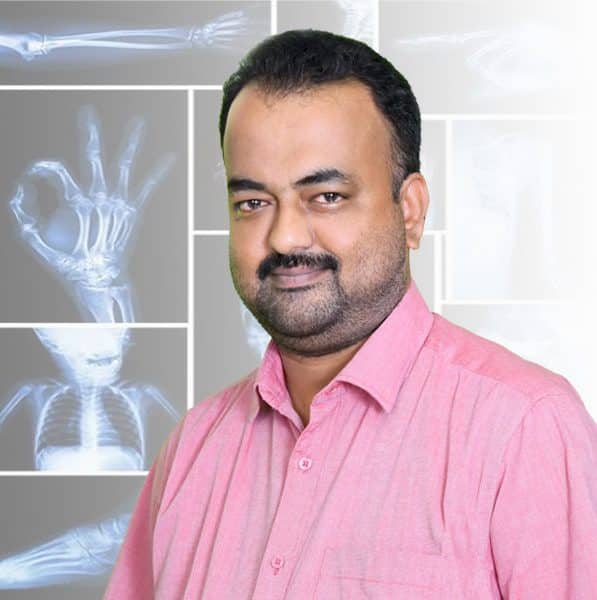The knee, which is the biggest joint in the human body, is essential to almost all daily activities. Everyday activities including walking, climbing stairs, standing, and sitting all need knee movements. The knee is prone to injuries and osteoarthritis since it plays such a significant role in daily life. Knee replacement surgery is considered one of the most popular and useful treatment options in case of severe knee osteoarthritis. All the information you require concerning knee replacement surgery will be included in this post.
Everything You Need To Know About Total Knee Replacement Surgery
Knee osteoarthritis, a disorder that impacts millions of individuals worldwide, is frequently treated with knee replacement surgery. In this procedure, the knee joint’s deteriorated cartilage and bone are removed, and they are replaced with an artificial metal and plastic joint. Apart from osteoarthritis, knee replacement surgery is a preferred option for rheumatoid and post-traumatic arthritis. Before opting to have knee replacement surgery, it’s vital to weigh the risks and advantages of the treatment. Although it can be a successful technique to reduce pain and increase mobility.
Knee Osteoarthritis: Symptoms, Causes, And Risk Factors
The cartilage in the knee joint degenerates over time as a result of the degenerative joint disease known as knee osteoarthritis. Pain, stiffness, and a reduction of motion may result from this. Knee osteoarthritis symptoms typically appear gradually and get worse over time.
Knee osteoarthritis’s most typical signs and symptoms include:
- Pain in the knee joint, notably when walking or standing for long periods of time.
- Stiffness in the knee joint, especially after sitting or lying down for long periods of time.
- Swelling or tenderness in the knee joint.
- A crunching or popping sensation when moving the knee joint.
Although the exact causes of knee osteoarthritis really aren’t known, there are a number of risk factors. They consist of:
- Aging – as you get older, the cartilage in your knee joint naturally breaks down and wears away.
- Genetics – some people may be more susceptible to knee osteoarthritis due to their genes.
- Obesity – carrying excess weight puts extra pressure on the knee joint, which can cause the cartilage to break down more quickly.
- Injury – a previous knee injury can increase your risk of developing knee osteoarthritis.
Nonsurgical Treatment – Alternatives To Knee Replacement Surgery
Your doctor might suggest nonsurgical therapies to assist with handle your knee osteoarthritis symptoms before you consider knee replacement surgery. These remedies could consist of:
- Physical therapy – Routine stretching and exercises can help strengthen the muscles all around knee joint, reducing joint swelling and arthritis pain.
- Medicines – Over-the-counter(OTC) pain medications like acetaminophen and ibuprofen can help control pain and inflammation. Certain prescription-only drugs may be advised as well.
- Corticosteroid injections – Such injections can help decrease inflammation and discomfort in the knee joint.
- Using assistive devices – using a cane or brace can help take pressure off the knee joint and improve mobility.
What Is Total Replacement Surgery? Types Of Knee Replacement Surgery
If nonsurgical treatment options do not relieve the symptoms of knee osteoarthritis, your doctor may suggest knee replacement surgery. Now there are three types of knee replacement surgeries –
- Total knee replacement surgery is the one where entire knee joint is replaced by an artificial one.
- Partial replacement surgery – Here only the damaged part of the knee is removed.
- Bilateral replacement surgery – Both the knees are replaced here.
One requires a total replacement surgery if the damage of knee joint has reached an advanced stage. The surgery is performed once after the anesthesia sets in, taking 2-3 hours overall. These days, the patient doesn’t require to stay back long. Pain relief medications are given to the patient after the surgery to handle the discomfort.
How Long Does A Total Knee Replacement Last?
One of the primary perks of knee replacement surgery is that it can give long-lasting pain relief and increase mobility. A total knee replacement’s longevity, however, can vary depending on a number of factors.On average, a complete knee replacement can last between 15 and 20 years. To assist extend the lifespan of your total knee replacement, it’s crucial to abide by your doctor’s instructions for after surgery care and maintenance, such as avoiding high-impact activities and keeping a healthy weight.
Knee Replacement Recovery Time – What To Expect After Knee Replacement
The length of recovery following knee replacement surgery can vary depending on a number of variables, such as the complexity of the procedure, general health, and your dedication to physical therapy and rehabilitation. After the surgery, it is required to take sufficient rest and the prescribed medications on time. Additionally, the services of a physical therapist should be availed to improve motility soon. It is vital to follow your doctor’s instructions for post-surgery care and therapy to assist guarantee a good recovery and limit the chance of problems.
Final Say
The surgery has positive effects on people suffering from osteoarthritis, which affects their motion and daily life activities. However, one should consider all other options before going for a knee surgery. It’s also necessary to discuss knee replacement surgery cost with one’s doctor before making a final decision. At Ayu Health , the patient’s receive expert advice and quality medicals services. Call at 636-610-0800 for booking an appointment today.
Our Hospital Locations
Orthopaedics Surgery Hospitals in Chandigarh | Orthopaedics Surgery Hospitals in Bangalore | Orthopaedics Surgery Hospitals in Jaipur | Orthopaedics Surgery Hospitals in NCR | Orthopaedics Surgery Hospitals in Hyderabad
Our Doctors
Orthopaedics Surgery Doctors in Chandigarh | Orthopaedics Surgery Doctors in Bangalore | Orthopaedics Surgery Doctors in Jaipur | Orthopaedics Surgery Doctors in NCR | Orthopaedics Surgery Doctors in Hyderabad
About the Author

Dr. Manjunath Kumar K.
Dr. Manjunath Kumar K. is a renowned Orthopaedics currently practicing at Ayu Health, Bangalore.
He is an orthopedic surgeon currently practicing at Mallige Medical Center, Bangalore. A highly qualified doctor, he has completed his MBBS from Bangalore Medical College and MS in Orthopedics from KIMS, Hubli. further higher surgical training was from England, Birmingham. His post-graduate degree from the royal college of Edinburgh and the Royal College of Ireland. He also has vast experience in treating Unilateral Total Knee Replacement, Bilateral Total, Knee Replacement, Total Hip Replacement Surgery, and ACL Tear




